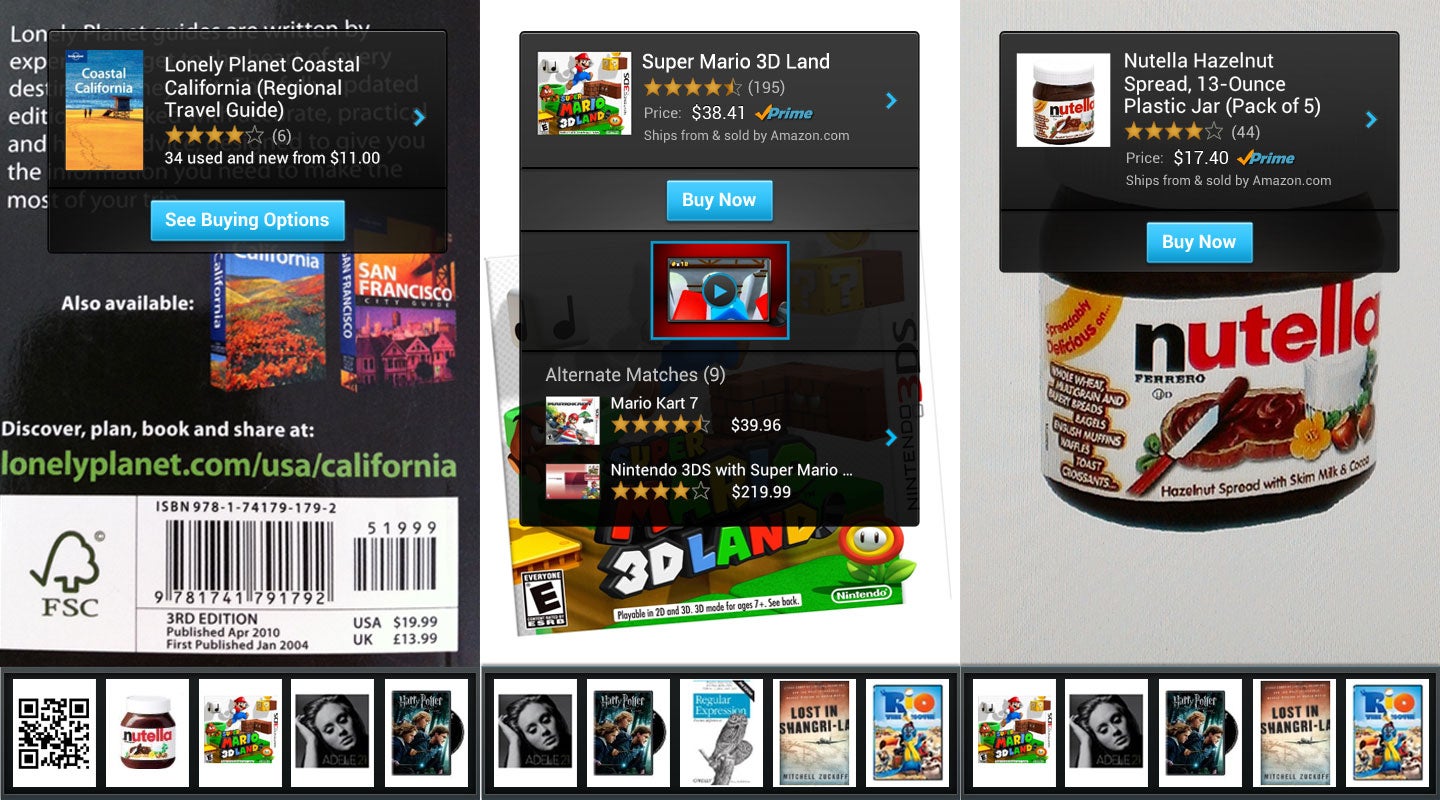Rhodri Marsden: It won't be long until impulse purchases will be a case of 'think it, buy it'
A new app from Amazon lets users take pictures of objects in order to buy them - impulse shopping is becoming even easier

Your support helps us to tell the story
From reproductive rights to climate change to Big Tech, The Independent is on the ground when the story is developing. Whether it's investigating the financials of Elon Musk's pro-Trump PAC or producing our latest documentary, 'The A Word', which shines a light on the American women fighting for reproductive rights, we know how important it is to parse out the facts from the messaging.
At such a critical moment in US history, we need reporters on the ground. Your donation allows us to keep sending journalists to speak to both sides of the story.
The Independent is trusted by Americans across the entire political spectrum. And unlike many other quality news outlets, we choose not to lock Americans out of our reporting and analysis with paywalls. We believe quality journalism should be available to everyone, paid for by those who can afford it.
Your support makes all the difference.I'm not a miserly person, honest, but I have to admit that I am always a straggler in the race to spend large sums of money. In the unlikely event of us all going on a shopping expedition together, you'll see me pacing around a store, then popping in and out of all that store's competitors, down the street and back again, my head a jumble of figures and spending priorities.
Online, I'm not much better. I bookmark products and then never buy them, I leave things sitting around in virtual shopping baskets, and I back out of purchases just before clicking "Confirm" when some mysterious inner force tells me to reconsider. Online retailers probably despise me and the chair I'm sitting on; they try to find ways to hurry purchases along, but I am programmed to resist.
The thing is, maintaining that resistance is getting harder. The hoops that we're normally obliged to jump through when buying stuff online are being dismantled. Browsers auto-complete our credit card details so we don't have to pop into the next room to fetch our wallet or purse; how many sales are lost as people decide that they can't be bothered to make the journey?
Tighter integration between eBay and Paypal makes it much easier to make frivolous eBay purchases. Password managers, such as Dashlane, make online spending as frictionless as an eel zooming down the luge; the number of clicks, passwords and customer details we need to enter is being cut; and conversion rates rise as a result. Instead of thinking to yourself: "I probably shouldn't be buying this," you find yourself looking at a shipping confirmation message and thinking, "Blimey, that was easy."

Amazon – you know, that omnipresent retail deity that would undoubtedly find a way of selling us oxygen if it could (actually, I just checked and it does: a 15-litre can with a mask and tube costs £29.99) – is perpetually inventing ways to stop us thinking about spending money and actually spending that money. In interview with CNET this week, Amazon's vice president of mobile, Sam Hall, said: "We'd love customers to get from 'they want it' to 'they want to buy it' in two seconds or zero seconds." Zero seconds!
One of the ways it's achieving this in the US is with a picture-recognition app called Flow, which has just been incorporated into the main Amazon app. With the noble aim of getting Americans to buy consumables via mail order, the app allows you to take a photo of a product (coffee, razors, ballpoint pens), looks up the item – and enables you to order it with just one tap. Goodbye, shopping lists pinned to a noticeboard in the kitchen; hello DHL driver at the door.
We might not have access to this in the UK yet, but our own Amazon app has a barcode reader that also stops you having to search for products online. Just installed your last printer cart? Scan the package, and you'll have a replacement through your door tomorrow.
Amazon's schemes, along with others such as Login With Paypal and Google Wallet, are entirely built around user experience and will ultimately reshape our mental approach to online shopping. Impulse buys will become precisely that: think it, buy it. Which is fine if you've got the cash, I suppose. And fine if you don't mind your online purchases being processed and fulfilled by a small number of multinational corporations. But, as I say, I've always had hang-ups about spending money.
Join our commenting forum
Join thought-provoking conversations, follow other Independent readers and see their replies
Comments